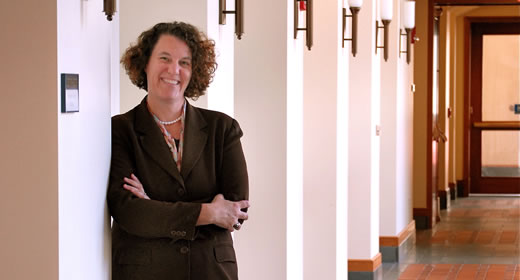
A team of four researchers, including Susan Dynarski, published a working paper on income-contingent loan (ICL) systems this month for the Centre for Global Higher Education: “Getting student financing right in the US: Lessons from Australia and England.” Their report is featured in a March 14 New York Times higher education article by Ellie Bothwell: “Income-contingent loans ‘could solve US student debt crisis.’”
The research team advocates for adoption of an income-contingent student loan repayment system in the U.S., meaning borrowers would repay their loans at a rate based on their level of income. This is in contrast to the current “mortgage-type” student loans currently in operation in the U.S., where borrowers pay the same fixed amount throughout the repayment period.
Drawing on data from the Current Population Survey (CPS), the researchers show how an income-contingent loan system similar to those operating in England and Australia could be implemented in the U.S. By comparing repayment rates between the two systems, they argue that an income-contingent system would not only protect low-earning recent graduates from financial strain or default, it would also keep taxpayer subsidies low.
In a country where “U.S. graduates owe $1.3 trillion in student loans; seven million are in default and even more in arrears,” the authors write, “a well-designed ICL can solve these problems in an efficient and cost-effective way with no risk of default.”
The research team includes Nicholas Barr (London School of Economics), Bruce Chapman (Australian National University), Lorraine Dearden (UCL Institute of Education), and Susan Dynarski of the Ford School.
Susan Dynarski is a professor of public policy at the Ford School, professor of education at the School of Education, and professor of economics at the Department of Economics. She serves as co-director of the Ford School's Education Policy Initiative, which engages in rigorous, policy-relevant research to improve educational outcomes and reduce disparities.
More news from the Ford School